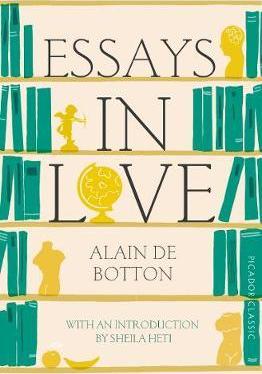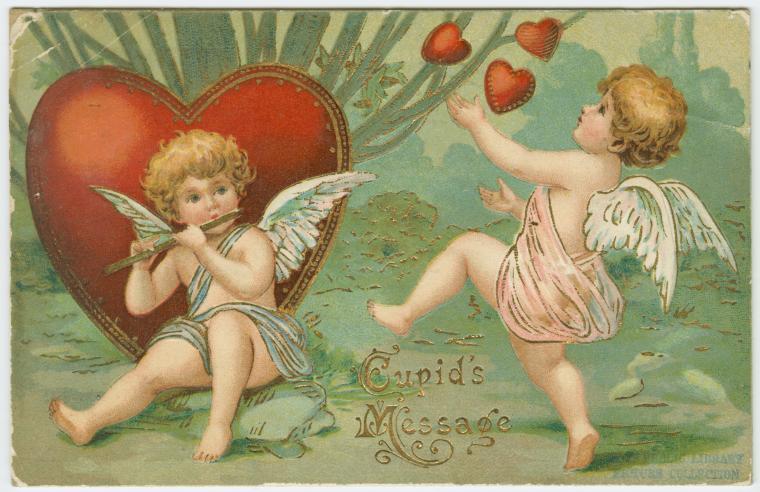Essays in Love
Author: Alain De Botton
Genre: Relationship, Philosophy, Fiction

Alain, along with Nassim Taleb, is probably one of the most interesting philosopher-writers of our times. The story goes that when he got a million-dollar cheque on his first book ‘essays in love’, his father was actually upset agonizing over what Alain would do with his life. Because his father you see was the owner of a hedge fund and the family net worth was about 250 million dollars, and he did not relish his son becoming either a philosopher or a writer!
When Alain decided to write his first book, he had a dilemma. On the one hand, he wanted to write something really deep which had an intellectual content to it. On the other hand, he also realized that any philosophical work could become drab and boring, especially for a young audience and especially on a theme so exciting as love. “I appreciated how novels could generate emotion, moving you, perhaps to tears, through characters with some of the quality and immediacy of real-life acquaintances. At the same time, I was drawn to the genre of the essay… where the author takes the reader around some highly thought-provoking philosophical ideas, in a tome that is intimate, digressive and charming.”
So, he created this book: a beautiful blend of a fictional story and a non-fictional analysis on every aspect of the love story. It outlines the entire “love cycle”: how a man and a woman get attracted to each other, all that they do during courtship, how they fall in love with each other, how the relationship continues from the exotic to the mundane, and how sadly they grow “out of each other”, its aftermath with hint of suicidal tendencies, and eventually how they both move on with their lives. But unlike a usual love story, after every few incidents, Alain includes a deep reflection on the feelings, emotions and ethics involved and generally a larger insightful commentary on this interesting affair we call love. What really goes inside the mind of a man who is trying to woo a girl, how do insecurities play out, why exactly does boredom come in, why do people get tempted with the “other”, and then what circumstances help one move on. The book sold more than 2 million copies and was adapted to a movie (My last 5 girlfriends).

Instead of a full commentary, let us just reproduce some gems from the book, mostly verbatim. Read it hopefully with a wine, and only when you are in that deep contemplative mood that love often elicits. No need to finish in one sitting.
What really is love
- We often fall in love with the feeling of love rather than with the other person. The person just happens to be there, and we convince ourselves on her uniqueness and nobility. It is a triumph of hope over critical analysis. All evidences that deny her being our long lost soul mate are brushed aside and ignored because we want to immerse ourselves in that warm feeling.
- Literature would not work if we were all more different than we are alike.
- Perhaps it was not love we wanted after all, it was simply someone in whom to believe.
- [In love] Habits began to leak between us: I required Chloe’s need for total darkness in the bedroom, she followed my way of folding the newspaper, I took to wandering in circles around the sofa to think a problem through, she acquired a taste for lying on the carpet.
- [Feeling of being in love] We come close to concluding (though coyness prevented us from admitting this openly ) that everyone we’d ever come across was deeply flawed – and that we were in truth the only decent humans left on the planet.

What do we get attracted to?
- [Love is] Triumph of hope over self-knowledge. We fall in love hoping we won’t find in other what we know is in ourselves, all the cowardice, weakness, laziness, dishonesty, compromise, and stupidity.
- [Calling it love would be a] romantic delusion and semantic folly.
- In love, the longing is always to be loved for who one is, and not for specific benefits like beauty, wealth or intelligence. As if the real I is different from the attributes of that same I. Because fundamentally, we want to become our weakest self, lowering all guards, and can only afford to do so in the presence of a true lover. Because we all desire to escape ourselves.
- Most attractive are not those who allow us to kiss them at once (we soon feel ungrateful) or those who never allow us to kiss them (we soon forget them), but those who know how to carefully administer varied doses of hope and despair.
- How strange that a person one finds repulsive can be, for another, the most perfect thing?
- Does beauty give birth to love or does love give birth to beauty?
- It is a part of good manners not to question the criteria responsible for eliciting another’s love. The dream is that one has not been loved for criteria at all, but rather for who one is.
- [Lovers] should prefer the risk of being wrong and in love to being in doubt and without love.
The tragedy of the one-way lover
- The one-way lover despairs, “You should love me just because I love you. Because I have given so much of pure love to you, is it not my right and your duty to love me back?” He becomes an ego centric moraliser, judging her actions based on his own interests. And when this love is not returned, he gets drunk in the liquor of grief.
- He sulks and complains, in messages of deep ambivalence. Little incidents are blown out of proportion because the anger is ‘for no longer loving me’. A child’s cry seeking help and attention, wanting to be understood without needing to speak.
- ‘What have I done to deserve love?’ asks the humble lover… ‘What have I done to be denied love?’ protests the betrayed one, arrogantly claiming possession of a gift that is never one’s due.
- Irony of love that it is easiest confidently to seduce those to whom we are least attracted. The clumsiest seducer could generously be deemed the most genuine. Not to find the right words is paradoxically often the best proof that the right words are meant.
- We keep asking: does she desire me? And keep getting drawn to her irresponsibly but irresistibly. And then project our own desire in every action of hers, so an innocent eye movement shows hint of flirtation. Giving explanations that we want to believe in.
- If s/he really is wonderful, how could s/he could love someone like me? [Like Marx] cannot belong to a club that would accept someone like him as a member.
Love and Thinking
- Few things are as antithetical to sex as thought, sex is instinctive, unreflexive and spontaneous, while thought is careful, uninvolved, and judgmental. To think during sex is to violate a fundamental law of intercourse.
- Sighing that drowns the sounds of lovers’ thoughts, sighing that confirms: I am too passionate to be thinking. I kiss, and therefore I do not think.
Why does the heart break?
- It is as if the end of love was already contained in its beginning, the ingredients of love’s collapse eerily foreshadowed by those of its creation.
- Love is simply a direction, not a place, and burns itself out with the attainment of its goal.
- Lovers cannot do anything save oscillate between the twin poles of yearning for someone and longing to be rid of them. Happiness with other people seems bounded by two kinds of excess: suffocation and loneliness.
- I may have loved Chloe but because I know Chloe, I did not long for her.
- If you like them at the beginning, you probably won’t like them at the end. And if you start off hating them, there’s always the chance you’ll end up thinking they’re all right.
- [How sad that sometimes we are] Forced to share a bed with those who cannot fathom our soul.
- All of man’s unhappiness comes from an inability to stay in his room alone, said pascal, advocating a need for man to build up his own resources over and against a debilitating dependence on the social sphere.
- At precisely the time when things might still have been rescued with ingenuity, fearful and hence unoriginal, I became nostalgic… I could not understand why things I was saying and that in the past had proved so attractive were now suddenly so irritating. Once a partner has begun to lose interest, there is apparently little the other can do to arrest the process.
- Romantic terrorism… a gamut of tricks (sulking, jealousy, guilt) that attempt to force the partner to return love, by blowing up (in fist of tears, rage or otherwise) on front of the loved one. The terroristic partner knows he cannot realistically hope to see his love reciprocated, but the futility of something is not always (in love or in politics) a sufficient argument against it.
- At the basis of all sulks lies a wrong that might have been addressed and disappeared at once, but that instead is taken by the injured partner and stored for later and more painful detonation… Symbolizing the wider (but unspeakable) message ‘I am angry at you for no longer loving me.’
Alain wrote this book when he was all of 21 years of age, a remarkable feat considering most of us still are far from being mature at that age. Some parts may be a turn-off for Young readers (“why are you trying to intellectualize a beautiful feeling”) and some parts we may disagree with (not all love affairs must end with dejection and despair; I too fell in ‘love’ with all the childness of a 16 year old, but have managed to stay reasonably happily married after 25 years today :). Alain is primarily a thinker: the essays are solid but the story telling (the actual love affair between protagonist and Chloe) could have been more vivid, engaging and creative.

Why should you read this book: Who doesn’t fall in love? “Everyone falls in love and everyone is fallen in love with, and most people end up paired.” And yet we are so grossly unprepared for perhaps this most intense of emotions in our lives. All of us start with getting butterflies in our stomach to the point of behaving foolishly, and yet only to at some point be the dejected and heart broken. From the heights of bliss to the breakdown of a forsaken lover – so many emotional swings happening for the very first time in life. The book will give us the much-needed ammunition and perspective to handle this most unruly of emotions.
Goodreads Link: Essays in Love by Alain de Botton | Goodreads

 This information will never be shared with third party
This information will never be shared with third party
Interesting read and insight on the book.
Good details, long enough to tell us what to expect and short enough to build excitement to want more. Good work